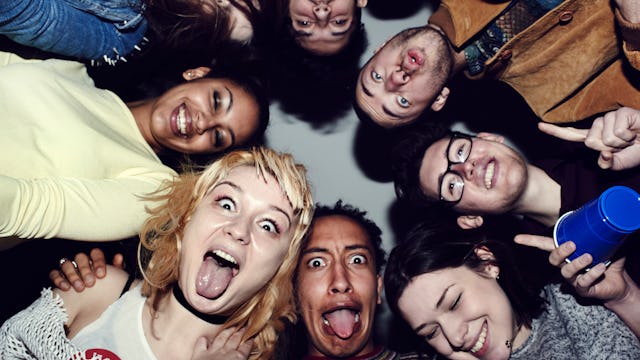Brain Scientists Say People Don't Actually Become 'Adults' Until Their 30s

As it turns out, we have way longer to be a “kid” than we originally thought
Good news if you’re deep in your 30s and still occasionally (or if you’re me, always) being told to “grow up.” As it turns out, you’re just barely qualified to be called an adult — and that’s according to literal brain scientists.
The law might state you’re an adult when you turn 18, but anyone parenting a college kid knows that’s merely a technicality. But to find out that scientists don’t think humans are actually “real” adults until their 30s is pretty groundbreaking — and reassuring. Come on, I can’t be the only one to spend most of my 30s utterly stunned that the world at large considers me an adult. I only figured out all the settings on my washing machine like, three years ago.
It’s all in the very science-y research that suggests the human brain is still undergoing a ton of significant changes well beyond the age of 18. It’s not as though a person turns legal age and overnight, is suddenly equipped with all kinds of adult brainwaves and the solid judgment that comes with those upgrades. Cambridge University Professor Peter Jones tells BBC News that it’s just not that simple. “What we’re really saying is that to have a definition of when you move from childhood to adulthood looks increasingly absurd. It’s a much more nuanced transition that takes place over three decades.
OK, so what he’s saying is the fact that I still enjoy all things unicorns, own a number of stickers, and laugh at fart jokes is all part of my natural growth process. Cool.
But real talk, this is a very important concept. He confirms that all these different societal definitions of “adult” are, in fact, pretty arbitrary. “I guess systems like the education system, the health system and the legal system make it convenient for themselves by having definitions,” he says.
Sure, being 18 means you can do nearly anything legally (besides drink alcohol) but that doesn’t mean the maturity level of an actual adult is truly there. Professor Jones thinks the criminal justice system is one example where (sometimes) society is starting to catch on. He feels a good and experienced judge can tell the difference between a legal-age teen and a “hardened criminal” in their 30s. “I think the system is adapting to what’s hiding in plain sight, that people don’t like (the idea of) a caterpillar turning into a butterfly,” he says.
Jones suggests it’s not as cut and dry as we’ve been conditioned to think. “There isn’t a childhood and then an adulthood. People are on a pathway, they’re on a trajectory,” he explains.
This isn’t simply one professor getting philosophical about what it means to grow up — actual research already confirms that the “rational” part of the brain isn’t fully developed until age 25. It would stand to reason that it takes another few years for all of those adult thought patterns to be completely present.
So the next time someone calls you immature or tells you to act your age, you can feel fully confident that you’re developing exactly as nature has allowed you to. But just because science says you’re an adult in your 30s doesn’t mean you ever really have to be.